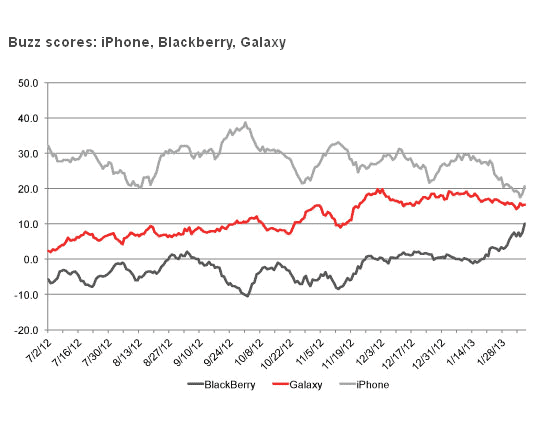In late July, when AT&T reported its Q2 numbers, Forbes ran a headline that might have seemed curious to the casual observer.
“AT&T Profit Beats Street, No New iPhone Means Improved Wireless Margins”
The story explained that the telco giant’s net income, which at $3.9 billion or $.66 cents a share, exceeded analysts estimates of $.63 cents, was higher because AT&T subsidizes the sales of iPhone by making payments to Apple. “The more new iPhones AT&T sells,” explained writer Abram Brown, “…the more harm done to its margins.”
Over at AT&T competitor Verizon there’s a similar story on bottom line. Verizon’s EBITDA margin in 2010, before it began to sell the iPhone, was 46.4%. That number dropped to nearly 42%, before rebounding recently to 49% because the company, like AT&T, was selling fewer iPhones in advance of the iPhone 5 launch this fall.
And Sprint is the most highly levered to Apple of all; signing a $20-billion dollar deal to buy about thirty million iPhones over the next four years, which means it will subsidize the cost of each device by as much as $500. Sprint CEO Dan Hesse reportedly told the company’s board it would lose money on the deal until 2014.
_____________________________
This story is brought to you by Zecotek Photonics (TSXV:ZMS). As of November 16, 2011, Zecotek owned title to or controlled more than 55 patents and applications. Click here to learn more.
______________________________
Apple is using the remarkable consumer demand for the iPhone to carve out sweetheart deals with carriers. It’s own financial reports reveal that the average price it receives for an iPhone is $660. Carriers, of course, subsidize the cost of an iPhone because consumers want it, and they will sign lucrative long term contracts to get one. The difference is largely made up on data plans.
But the relationship is contentious, and is growing more so, according to experts.
“A logical conclusion is that the iPhone is not good for wireless carriers,” Nomura Securities analyst Mike McCormack told CNN Money writer David Goldman recently, “When we look at the direct and indirect economics that Apple has managed to extract from the carriers, the carrier-level value destruction is quite evident.”
In her assessment, Yankee Group analyst Katie Lewis is even more plain:
“Mobile operators are sick of taking orders from Apple…iPhones are occupying an increasingly dangerous share of mobile operators’ smartphone sales. In 2011, iPhones represented half of AT&T’s smartphone sales, and now that Verizon has recently voiced a similar shift in sales, the companies’ fears of an Apple takeover are growing stronger.”
Enter the beleaguered, beaten down BlackBerry. Could the timing of RIM’s new BlackBerry 10 phones actually be an important factor in its success? While no one outside of the 519 area code expects the BlackBerry 10 handsets to outsell the iPhone 5, the devices could potentially be a body shot in a battle plan designed to bring the balance of power between carriers and Apple back in line.
In Q1, 2012 AT&T sold 5.5 million smartphones, 78% of which were iPhones. Are they happy with this? Some say the answer is a resounding “No”. Earlier this month, the website BGR ran a story that said multiple sources had reported that AT&T retail staff had been ordered to sell “anything but the iPhone” and that they themselves were no longer allowed to use iPhones as their company-owned device. Around the time the story was being denied by AT&T, CNN was reporting that Verizon was doing the same thing.
RIM CEO Thorsten Heins is currently on the road with him two beta versions of BlackBerry 10 smartphones, one is a touch device similar in appearance to the iPhone. The other, which will be released soon after, has both a physical QWERTY keyboard and a touchscreen. Heins is looking to convince carriers to support the devices, which will ultimately total six.
“The carriers want us to keep that installed base [of BlackBerry users],” Heins told the Wall Street Journal recently. Early indications are that the BB10 will be given a fighting, front-of-the-store chance.
One unnamed wireless network exec told the paper that BlackBerry 10 is “marked improvement” over previous BlackBerry devices, and that he is confident of their market viability.
In May, rumours emerged that T-Mobile would carry BlackBerry 10 devices. And AT&T spokesman Mark Siegel said recently: “We value our relationship with RIM and look forward to working with them on existing and new products.” As for Verizon, CrackBerry.com’s Kevin Michaluk is reporting that it too will back BlackBerry 10. Sprint is predictably cagey. A spokesman for the company said the carrier doesn’t think BlackBerry will return to its former glory, but that he wouldn’t count RIM out.
Handsets featuring the BlackBerry 10 operating system are expected to launch in the first quarter of 2013.
Currently popular on Cantech: “Why Critics Love to Hate Elon Musk”
_______________
________________
Comment
Leave a Reply
You must be logged in to post a comment.






 Share
Share Tweet
Tweet Share
Share




Ok So much is RIM paying you to publish this article?
Forgive Dee,he doesn’t get it.He doesn’t see that the stock price has more than doubled since September.He still refers to Blackberry as RIM.Blackberry is back friend!Act like you know!
this is so dumb. carriers don’t dictate demand, the people do. if your argument was correct then we could say that the carriers should have never subsidized the iphones to begin with. one of the dumbest things I’ve heard in my life.
This makes perfect sense. Apple screwed carriers by forcing them to heavily subsidize the phones (or lose customers) so now the carriers are doing what’s in their best interest and having their salespeople push phones that provide a better margin of profit.
Carriers might not dictate demand but they can influence it by promoting specific phones.